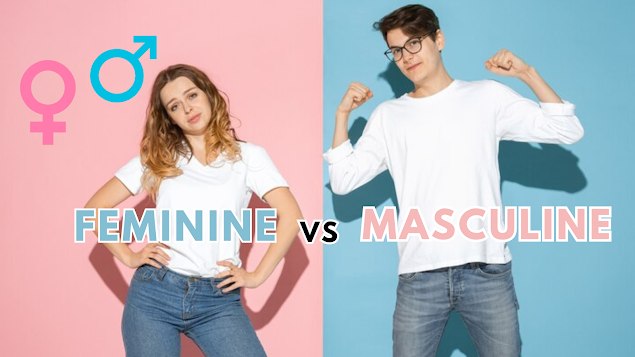Every person possesses both masculine and feminine energies. Gender is irrelevant in this context. Generally, women have more feminine energy, while men have more masculine energy. Aligning with our true energy makes us feel our best, helps us succeed, and fosters healthy relationships. Understanding the key differences between these energies can be enlightening. Let’s delve into these distinctions.
Difference 1
Masculine energy is characterized by action, while feminine energy is characterized by being. This means masculine energy is more outward-focused, whereas feminine energy is more inward-focused. Men tend to project their energy outward, while women project their energy inward. Another perspective is that masculine energy operates on the physical plane, while feminine energy operates on the energetic plane. In practice, healthy masculinity is about doing, achieving, and making an impact. Conversely, the feminine focuses on feelings such as love, peace, inspiration, and connection.
Difference 2
Men are more linear, while women are more cyclical. Our hormones support these differences. Men thrive on structure, consistency, routine, and singular focus, with their hormones remaining constant daily. Women, on the other hand, operate in waves. Their hormones follow a month-long cycle, fluctuating daily due to the menstrual cycle. This difference underlies their cyclical nature.
These energies also manifest differently in relationships. Men typically focus on solving problems, fixing things, and taking action, often preferring not to discuss issues at length. For the feminine, talking itself can be a solution and an action. This fundamental difference can cause conflicts in relationships. For example, two masculine men in a heated argument might be more inclined to physically confront each other, whereas two feminine women might engage in verbal disputes, raising their voices and focusing on communication.
Men are generally more outcome-oriented, focusing on results. They create to achieve specific goals. In contrast, the feminine energy emphasizes the process of creation. An example is cooking dinner: a man might cook primarily to have a meal, while a woman enjoys both the process of cooking and the meal itself, finding beauty and meaning in the creation process.
Men tend to focus on one thing at a time, while women can juggle multiple tasks simultaneously. Women often have many things on their minds and manage various responsibilities at once. Men, however, typically concentrate on one task at a time and may struggle when multitasking. Neither approach is superior; it's simply a difference that should be respected.
Men provide energy, while women receive it. This dynamic is evident in relationships and within individuals. Men offer structure, leadership, protection, and safety. Women receive these provisions, allowing them to focus on love, creativity, nurturing, beauty, and relationships. Men feel fulfilled when they can provide and feel appreciated and respected for their efforts. Women feel content when they can relax, feel safe, and are cared for.



.png)
.png)
.png)
.png)
.png)
Post a Comment
Share your opinion with me in the comments below!